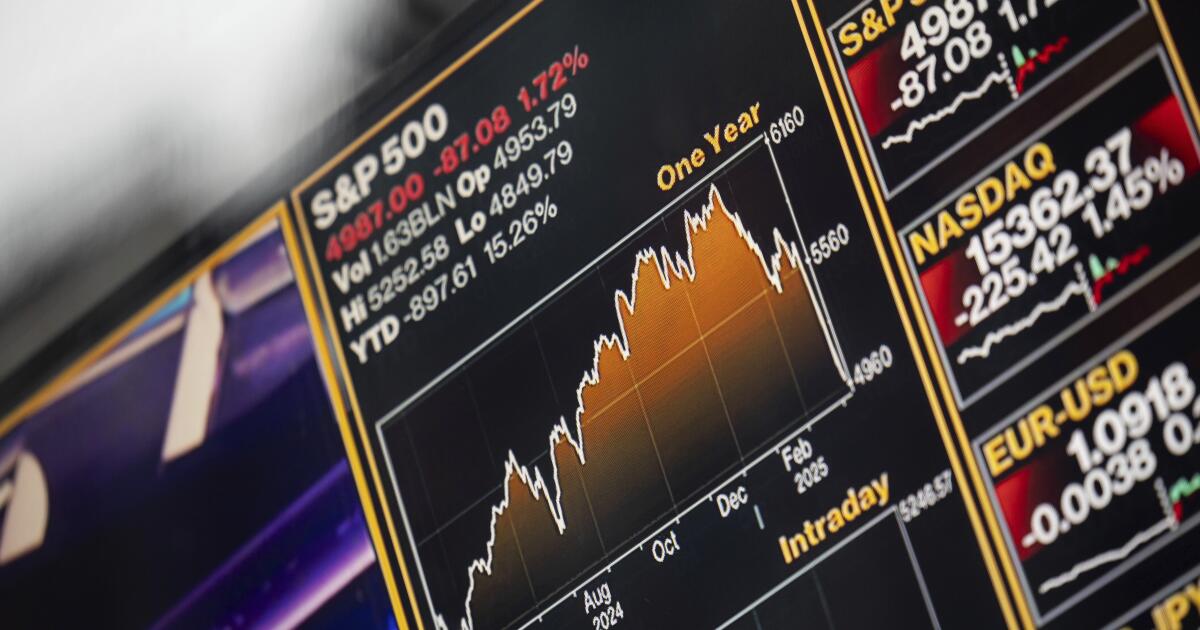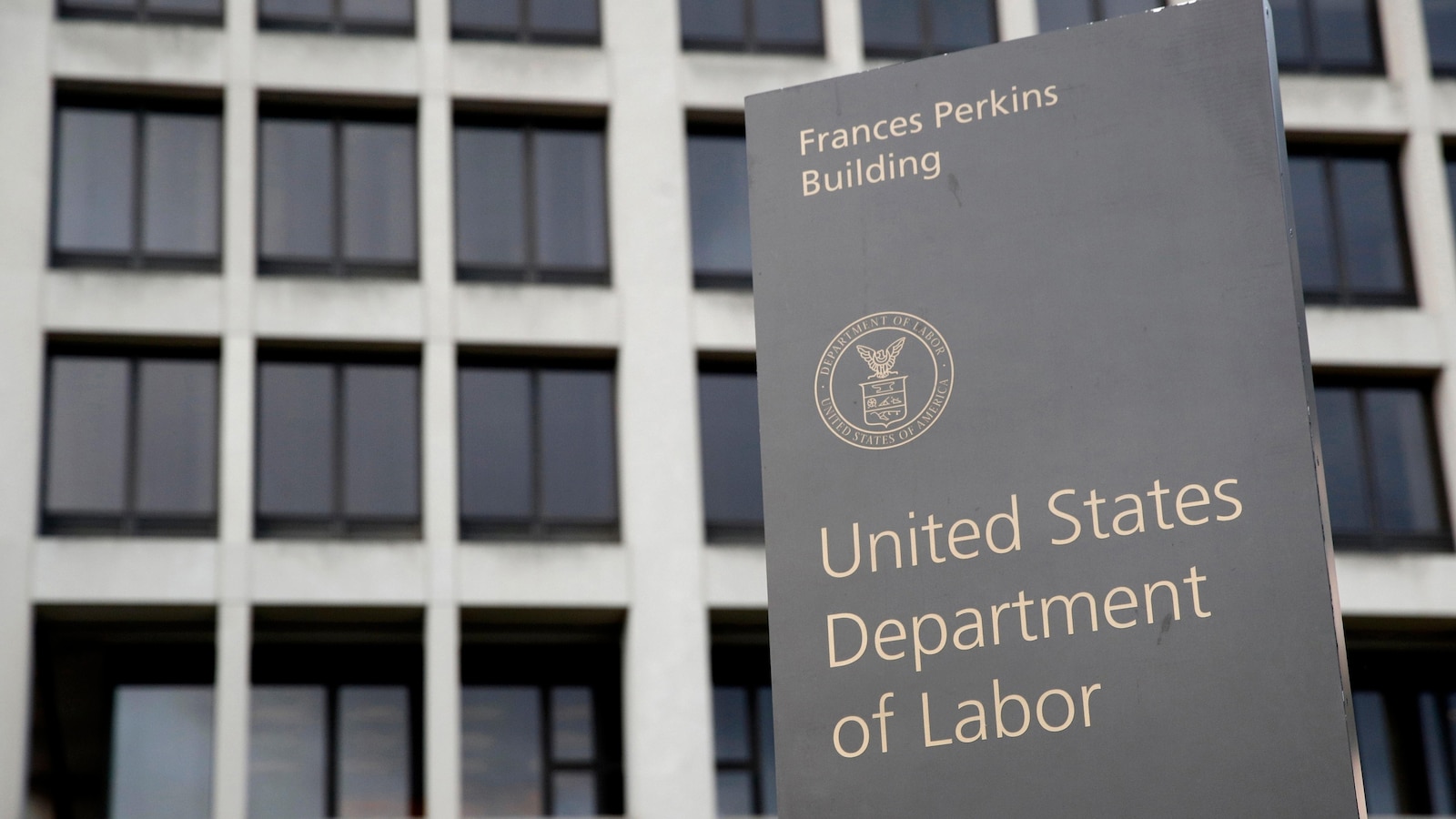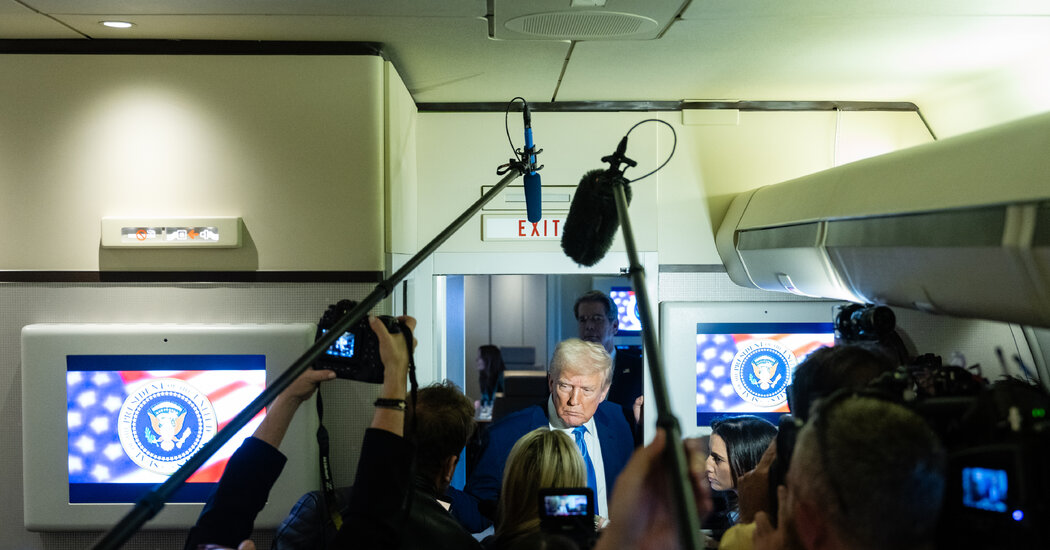
Amid economic chaos, some Republicans want control of tariffs back in Congress
WASHINGTON — As the fallout over President Trump’s tariffs continues to roil the world economy, a few Republicans in Congress have begun discussing how to curb the president’s ability to levy tariffs — taking a rare step to rein in the party leader.
Republican leaders have largely struck a “wait-and-see” attitude toward the tariffs, as well as with their continued effect on the plunging stock market and negative consumer sentiment. Speaker Mike Johnson told reporters Monday that Congress would “weigh in on it, but with the president, with the administration in tandem.”
“I think you’ve got to give the president the latitude, the runway to do what it is he was elected to do, and that is to get the economy going again and get our trade properly balanced with other countries,” Johnson said.
But others in Congress — including a couple of California Republicans — don’t want to wait.
Sen. Chuck Grassley (R-Iowa) introduced a bill last week, alongside Sen. Maria Cantwell (D-Wash.) and other lawmakers of both parties, to reassert Congress’ authority and limit the president’s power over trade policy. The Trade Review Act of 2025 would require the president to notify Congress of any new tariffs within 48 hours, and to provide analysis and reason for their purpose. It also would allow Congress 60 days to review the tax.
“I’ve long expressed my view that congress has delegated too much authority on trade to the executive branch under Republican & Democrat presidents,” Grassley posted on X.
Rep. Don Bacon (R-Neb.) said Sunday that he would introduce a companion bill in the House, so it could advance in both chambers.
Support from Californians
Already, several Republican lawmakers — including California Rep. David Valadao, a Hanford Republican who holds the precarious swing seat in the 22nd Congressional District — suggested support for the legislation. Valadao said on News Nation on Sunday that he needed “to take a better look” at Bacon’s proposal, but it “is something that should be considered.”
“I’ve always been someone who supports giving power back to the Congress the way our founding fathers originally designed,” Valadao said. “And this is one of those powers that belongs in the Congress, and we should be looking at that in, I think, a very serious manner.”
Valadao represents an agriculturally rich swath of the Central Valley, home to acres of almond farms and lemon groves. The congressman said he’d heard from constituents on both sides of the tariffs debate — those whose exports are receiving a stiff reception from other countries, and those who wished for higher tariffs on competing industries. As a dairy farmer himself, Valadao said he used to lobby lawmakers for tariffs against countries whose labor standards or regulations differed from the U.S., making it harder for American companies to compete.
“They’re competing with me at the grocery store shelf, and it was frustrating,” Valadao said. “I think [tariffs] should be used as a tool to get to a level playing field.”
Other support for the legislation trickled in Monday, as markets continued to drop and bankers talked of a looming recession. Sen. Deb Fischer (R-Neb.) said Monday on Fox Business that she wants “to give the president time” to see the effect of tariffs. But, she acknowledged, “Being able to have input on these tariffs is extremely important.”
A spokesperson for Rep. Young Kim (R-Anaheim Hills), who represents another swing congressional district in California, said the representative was “encouraged” by news from the White House that countries have been lining up to negotiate relief from the tariffs.
“Rep. Kim knows the importance of free trade for Southern California’s economy and believes we can strengthen U.S. industries while promoting free trade with like-minded allies and partners,” spokesperson Callie Strock said in a statement. “While tariffs can be a strategic tool, Rep. Kim is concerned about the impact long-term tariffs can have on families and small businesses already hurting from high taxes and living costs.”
Another California Republican, Rep. Tom McClintock, posted on X last week, “Our trade objective must be: ZERO tariffs, ZERO subsidies and ZERO non-tariff barriers. Tariffs always harm whatever country imposes them. Their only justification is to leverage trading partners to adopt free trade agreements. I hope this is where the President is going.”
Asked about the Elk Grove representative’s comments, spokesperson Jennifer Cressy said “his views have not changed” since 2018, when McClintock railed against tariffs in a House floor speech.
“There is no more perfect way to turn abundance into scarcity than by levying a tariff on imports,” McClintock said at the time. “Remember, every producer in a society is also a consumer. No consumer benefits from higher prices and no producer benefits from scarcer materials. Every country that has tried protectionism has suffered terribly, including ours.”
Despite the grumbling in Congress, Trump forged ahead. He ratcheted up the trade war with a post Monday on his website, threatening more strikes against China — the world’s largest trading nation, which retaliated against Trump’s 34% tariff last week by issuing its own 34% tariff against the U.S. The White House also indicated that the president would veto a bill restricting his power over tariffs, if it passed, according to Politico.
Are Trump’s tariffs constitutional?
The Constitution gives Congress the power over taxes, duties, imports and exports — including “to regulate commerce with foreign nations.”
But over the years, Congress has given the executive branch more leeway over foreign trade, beginning with the Reciprocal Trade Agreements Act in 1934. That allowed the president to make certain changes to tariffs without Congress’ approval, noted legal expert and Loyola Law School professor Jessica Levinson.
“When you look at an executive order in this area, it’s really a question of whether or not what the president is doing falls within the scope of one of these statutes where Congress has basically thrown the ball to the executive branch,” Levinson said.
Already, the New Civil Liberties Alliance, a nonprofit legal group that challenges administrative overreach, has filed a complaint alleging that the tariffs are unconstitutional. Trump invoked the International Emergency Economic Powers Act to issue tariffs, a move the New Civil Liberties Alliance claimed is not permitted under the statute.
Bacon agreed on CBS News’ “Face the Nation” on Sunday that Trump’s announcement was not a true exercise of emergency powers but a change in tariff policy.
“This is where Congress has to step in and say, do we really want to create this new policy on tariffs?” Bacon said. “And if it is, it should come from Congress, and not the president.”
Another bill, introduced in the Senate last week by Virginia Democrats, would in effect stop U.S. tariffs on Canada — which Trump enacted by declaring a national emergency over the fentanyl crisis — by ending the national emergency.
Josh Robbins, an attorney at the Pacific Legal Foundation, said an additional legal problem with the president’s tariffs is that Congress was wrong in handing over its tax authority to the executive branch.
“Congress has unconstitutionally given up way too much of its authority … to the president in a statute that really doesn’t have any guardrails on how he can regulate foreign commerce once he declares an emergency,” Robbins said.
During Trump’s first term in office, when he invoked steel tariffs, there was a bipartisan effort in Congress to rein in the president’s power, which ultimately did not pass.










